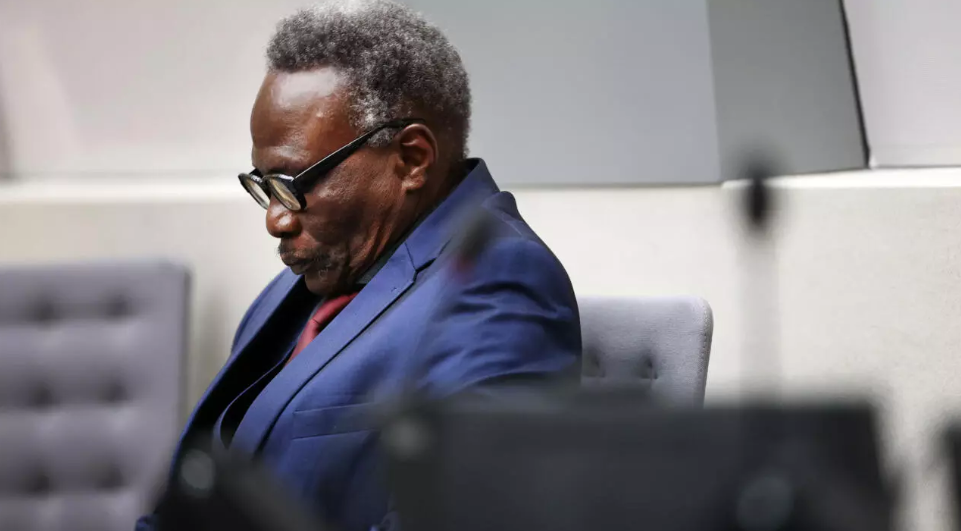The International Criminal Court on Monday convicted a notorious Sudanese militia leader for war crimes and crimes against humanity committed during a brutal campaign of attacks in Darfur two decades ago.
Ali Muhammad Ali Abd-Al-Rahman, widely known as Ali Kushayb, was found guilty on multiple counts, including rape, murder, torture, and pillaging. The crimes were committed between August 2003 and at least April 2004 as part of a systematic attack against civilian populations.
“The chamber is convinced that the accused is guilty beyond reasonable doubt of the crimes with which he has been charged,” ICC Presiding Judge Joanna Korner said as she read the verdict.
The three-judge panel detailed a litany of atrocities, citing harrowing accounts of gang rapes, mass killings, and the destruction of entire villages. Korner described one incident in which Abd-Al-Rahman personally oversaw the beating and execution of dozens of civilians.
“The accused was not only giving orders… but was personally involved in the beatings and later was physically present and giving orders for the execution of those detained,” Korner stated.
Abd-Al-Rahman, 75, was a senior commander in the Janjaweed militia, a largely nomadic Arab force mobilized by the Sudanese government to crush a rebellion by non-Arab groups in Darfur. Prosecutors argued he participated “enthusiastically” in the crimes.
Wearing a blue suit and scarlet tie, Abd-Al-Rahman listened impassively to the proceedings through an interpreter, occasionally taking notes. A sentencing hearing will be scheduled at a later date.
Throughout the trial, Abd-Al-Rahman maintained his innocence, claiming he was a victim of mistaken identity. “I am not Ali Kushayb. I do not know this person… I have nothing to do with the accusations against me,” he told the court in a hearing last December.
The judges dismissed that defense, saying they were “satisfied that the accused was the person known … as Ali Kushayb,” and found the testimony of defense witnesses who denied his identity to be unreliable.
Abd-Al-Rahman turned himself in to authorities in the Central African Republic in 2020 and was transferred to the ICC’s custody in The Hague. He said at the time that he surrendered because he was “desperate” and feared being killed by Sudanese authorities after a new government signaled its intent to cooperate with the court.
The conflict in Darfur erupted in 2003 when rebel groups, citing systemic discrimination, launched an insurgency against the Arab-dominated government in Khartoum. The government’s response, spearheaded by the Janjaweed, led to a humanitarian catastrophe. The United Nations estimates that 300,000 people were killed and 2.5 million displaced in the ensuing violence.
The conviction is a landmark moment for the ICC, which has long sought to hold senior figures accountable for the atrocities in Darfur. The court’s chief prosecutor at the time of the trial, Karim Khan, said Abd-Al-Rahman and his forces “rampaged across different parts of Darfur,” inflicting “severe pain and suffering.”
Khan has since stepped down from the case; he is now the ICC’s chief prosecutor and is facing unrelated, external allegations of sexual misconduct, which he denies.
Abd-Al-Rahman is also considered an ally of former Sudanese leader Omar al-Bashir, who is wanted by the ICC on charges of genocide, war crimes and crimes against humanity. Al-Bashir, who ruled Sudan for nearly 30 years, was ousted in 2019 but has not been extradited to The Hague.
The verdict comes as Sudan is again gripped by a devastating conflict between the national army and the paramilitary Rapid Support Forces (RSF), which human rights groups say evolved from the Janjaweed. The current war has killed tens of thousands and displaced millions, pushing the country to the brink of famine. ICC prosecutors have said they are investigating alleged new crimes committed in the ongoing conflict.




